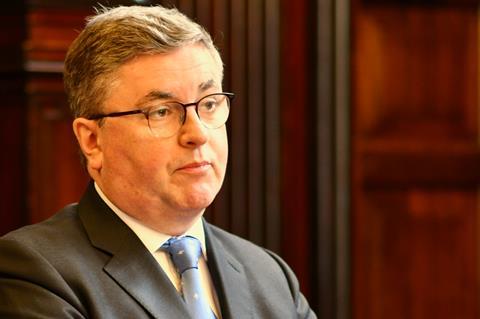The lord chancellor has called for stronger laws against companies that facilitate economic crime – but said that firms should not face an ‘undue burden of compliance’.
Speaking at the International Symposium of Economic Crime, Robert Buckland said there are concerns that the current law on corporate criminal liability is not fit for purpose, especially when applied to large corporates.
‘Reform may indeed be needed to ensure that organisations of all sizes can be held to account and serious crimes can be punished appropriately,’ he said.
‘At the same time, it is of course important to ensure that any reform does not impose an undue burden of compliance on companies – so it must also take account of the impact of increased costs on law-abiding corporations to ensure they are not overburdened by processes they are expected to follow.’

Current corporate criminal liability laws are based on the ‘identification principle’. This requires prosecutors to prove that the ‘directing mind and will’ of the company was involved in the alleged criminality. The ‘directing mind’ may be an individual, group of individuals or the board, depending on how the company is structured.
The identification principle can make it difficult to hold large companies to account as their lines of control are often blurred.
Last year, the Law Commission began a fresh review into corporate criminal liability to consider whether new offences need to be created to make it easier for enforcement agencies to prosecute crimes such as fraud, money laundering and false accounting.
Buckland said he is ‘hugely grateful’ to the commission. ‘I hope that what will result from it are recommendations that will strengthen the law and ensure that firms that aid and abet this sort of criminal behaviour realise that it will not carry on with impunity.’
A call for evidence on options for reforming corporate criminal liability was first issued in 2017, and solicitors and campaigners have criticised the government’s ‘fence-sitting’ approach, and accused it of kicking the issue into the long grass.
The Law Commission is due to provide an options paper to the government by early next year.


























